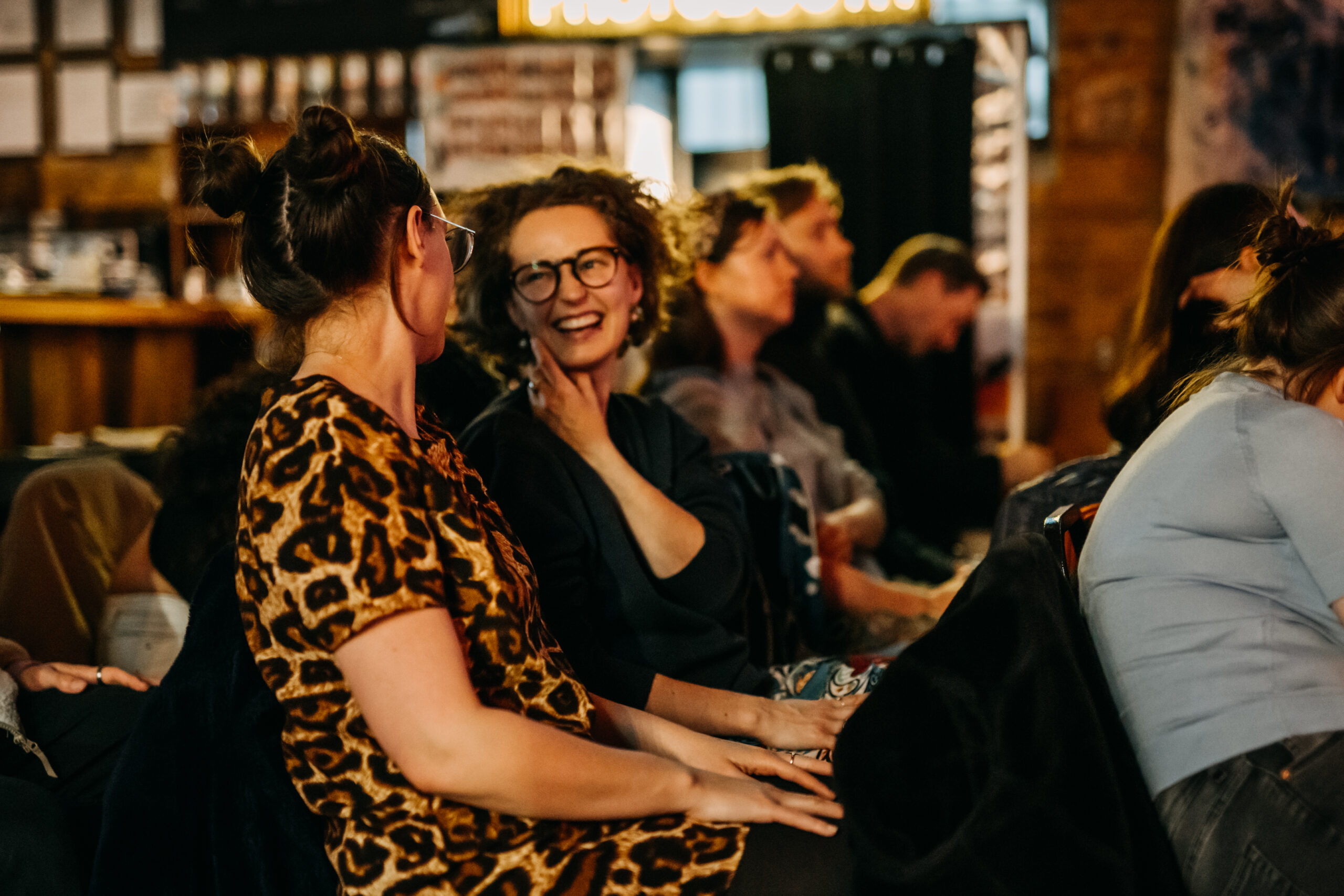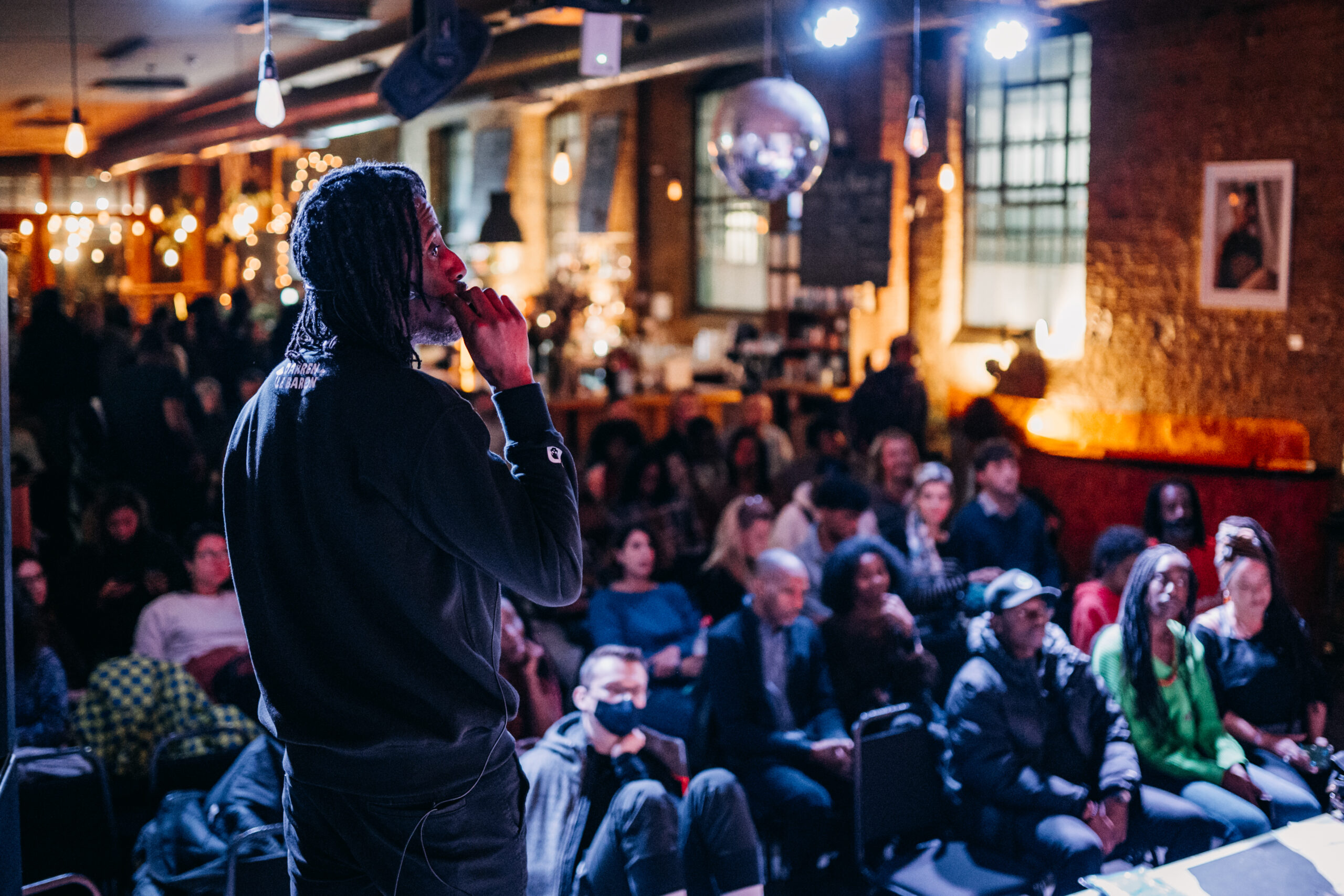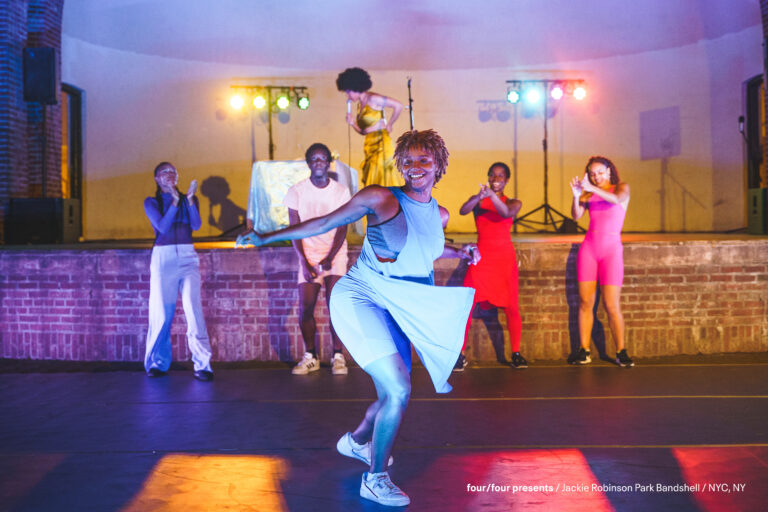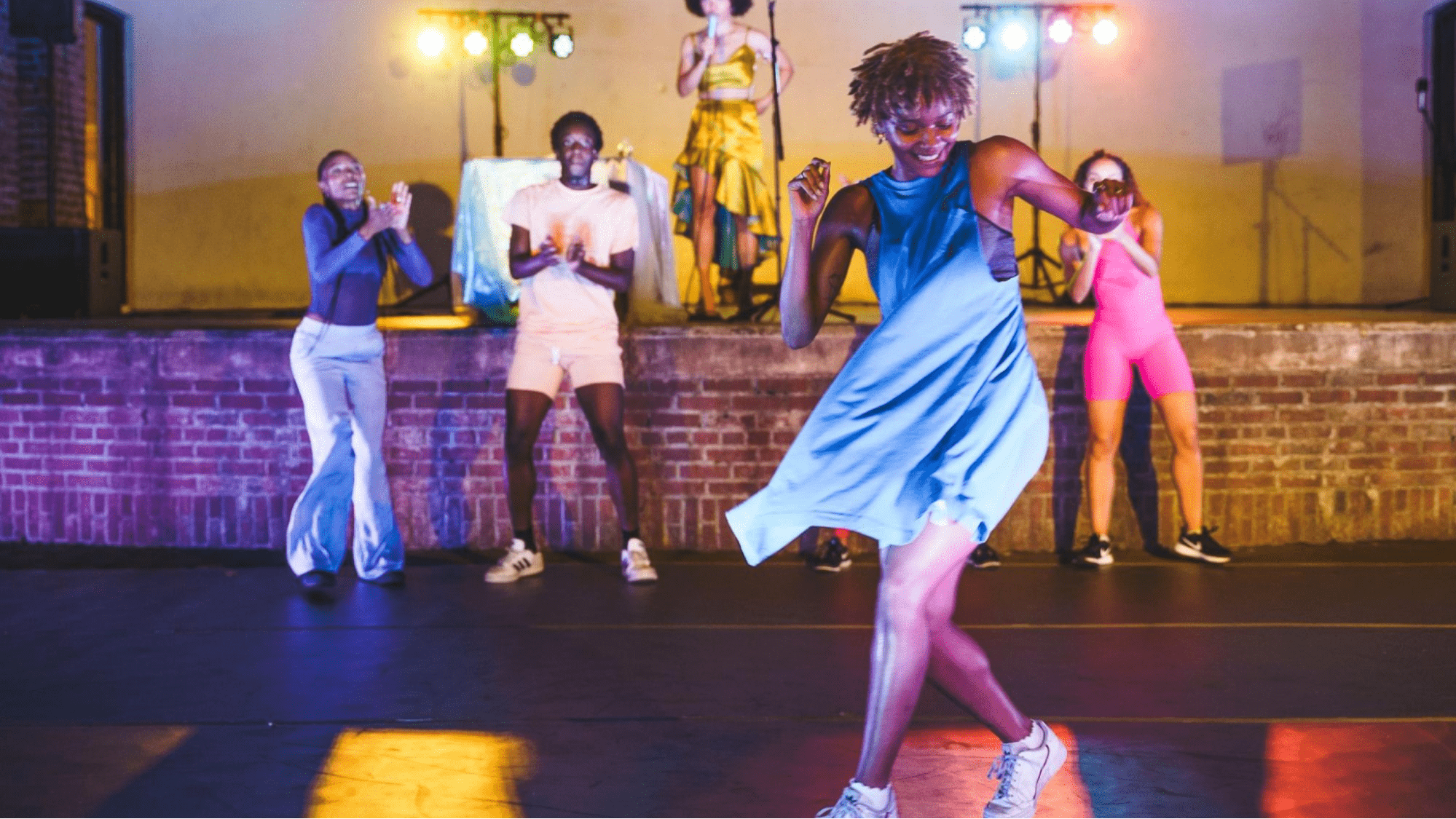Making time for yoga classes, meditation workshops, and healthy meals can all improve a person’s mental wellbeing, but self-care in 2024 goes far beyond what we once typically considered wellness to be.
The very act of attending an event can be a form of self-care—and while many people leave retreats or gong baths with that all-important inner glow, an afternoon of socialising, meeting people, or learning a new skill can be just as nourishing for the mind and body.
Events as Self-Care is a key trend identified in Eventbrite’s TRNDS 2024 report. As many as 73% of eventgoers in the UK told us they feel positively towards events offering meaningful, transformative experiences—and many are happy to pay more for these, too.
For Mental Health Awareness Month, we spoke to organisers successfully operating in this space to get their top tips on amplifying attendees’ experiences.
Create environments that encourage connections
Social isolation and loneliness are linked to poor mental wellbeing, and attending live events can be a great way to combat these feelings.
Nevertheless, walking into a room full of strangers can be nerve-wracking for even the most seemingly extroverted attendees. Chicago-based meet irl hosts romance and friendship-focussed events for millennials, and its founder Penny Gibbons is well aware of how nervous attendees can be. She puts together an event plan so that “as soon as people walk through the door, they immediately feel relieved.”

“We really try to design those first steps as mindfully as possible,” Penny explains. This involves making sure attendees are greeted by a host, given clear instructions on what to do, and a conversation topic to get them started.
“A good ice breaker is one that gives somebody the excuse to talk to as many people as possible,” she says. “You want to find something that will allow someone to have a five-minute conversation with one person and provide a reason to break that and chat with somebody else.”
Teach something new
Learning new skills is a proven way of boosting mental wellbeing—and you can also help people tend to other needs, such as spending time outdoors and those all-important social connections.
UK-based The Photography Academy offers a wide range of classes, from smartphone camera sessions for business owners to beginners’ DSLR courses and outdoor photo walks through picturesque towns.

“Photography is magical for self-reflection and observing the world around us,” says their founder Steph Cronin. “We would never witness new flowers in bloom or water droplets on the grass if we’re rushing to school or work. Walking outdoors with the sole purpose of photographing is a fascinating mindful experience.”
Seed Talks is a talk series exploring a range of topics from psychedelics and quantum physics both IRL and online. Founder William Mclean is committed to providing learning and personal growth opportunities.
“People want to invest in their future selves,” he says. “They come to our events to hear educational and interesting talks from expert speakers, and many of our topics are about—or support—attendees’ mental health.”
Help people feel good by doing good
Multiple studies have found that giving—whether it’s time or money—has a positive impact on mental wellbeing, and Eventbrite is used by thousands of organisers who help facilitate this.
Just months after she founded meet irl, Penny launched Trash People, a hyper-local non-profit that brings together people in her Chicago neighbourhood to pick up litter. Penny’s first clean-up was attended by around 20 people and just over a year later, there are now five groups in different neighbourhoods across the city.
“It’s not just about the environment,” she says. “It’s also nourishing and nurturing to us as human beings, through being outside, getting some exercise, sunlight, and talking with neighbours.”
For attendees who told us they crave transformative experiences, over half (54%) said events that provide them with a new way of viewing the world would fit the bill. Charity and social enterprise Migrateful offers cooking classes that do exactly that in three UK cities and online.

Migrateful trains asylum seekers, refugees, and migrants to teach the classes, which in turn gives attendees the chance to learn new skills and broaden their minds. They “provide an ideal environment for shifting narratives around migration and integration,” Migrateful founder Jess Thompson explains.
“People from different backgrounds come together, ostensibly to learn to cook,” she says. “But in so doing, stereotypes are challenged—the migrant is leading the class, everyone is cooperating together and the intimate setting enables personal stories to emerge.”
The income from the classes goes towards funding Migrateful’s work and they’ve so far supported 92 chefs from around the world. “We give them a platform to share their culture, culinary brilliance, and pursue happier, fulfilling lives,” Jess says. “Every person who has attended a Migrateful class is part of this.”

Eventbrite’s Make A Difference collection brings together events around the globe that help attendees drive positive change and make an impact on their communities. From supporting community cafes, such as Chicago’s Coffee, Hip Hop and Mental Health, to helping out a local business, such as Arcadia’s Hilltop Farm, there’s plenty of inspiration for how to help others give back.
Help build communities
Community is at the heart of what so many Eventbrite organizers do and feeling part of one can give people’s mental health a huge boost. Many of the volunteer events featured in the Make A Difference collection welcome returning attendees, with many boasting around 25% repeat customers. This shows attendees are not only keen to give back, but build long-lasting relationships with other eventgoers through Eventbrite.
“Ultimately, as humans, we’re social creatures who live in a society and community,” says meet irl’s Penny. “I think the absence of that community has left a lot of people feeling they’re missing something. Attending any events that are centred on a community versus random, one-off things can be really beneficial to wellbeing.”
As well as doing their bit for the environment, Trash People champions local businesses that host pre- or post-clean-up coffees or drinks where like-minded attendees can get to know each other a little more. “Even if we don’t organize something, we encourage people to grab a coffee with somebody,” Penny says. “It’s really wonderful to see deep friendships form because people have been able to meet people who live locally, and share their care for the community and the environment.”

Seed Talks founder William says people form deep connections at their events. “One of my favorite things to see is the sense of community and camaraderie between the guests,” says William. “For some, it’s the first time they’ve been in a room of people with the same lived experience and it can be moving. I know lots of people have formed support groups off the back of coming together at a Seed Talk, which is amazing to see!”
Steph makes sure her photography classes encourage attendees to feel part of a community too. Her Cameras & Cappuccinos Photography Club includes time to review the group’s snaps—including Steph’s—and talk about what went well and what didn’t.
“The difference in people from joining at 7pm to finishing at 9pm is transformational,” she says. “The rushed, stressed person comes in after the dinner time rush or finishing work, but melts into their chairs and enjoys conversations by the end. It’s a great way to wind down.”
Whether through connection, community, altruism, or self-improvement, there are many ways events are boosting attendees’ wellbeing.






